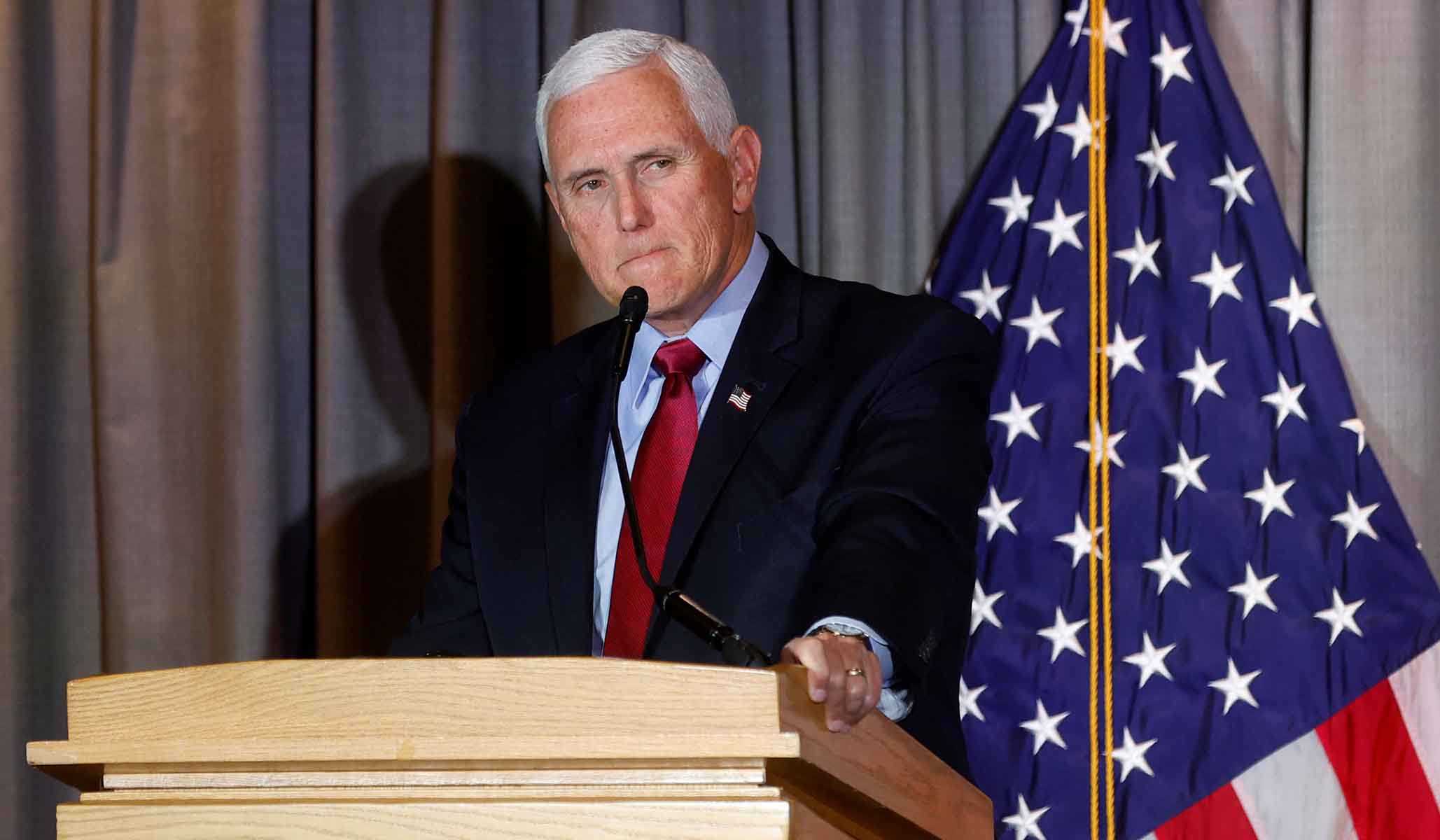


Two days ago, Mike Pence’s supporters formed a Super PAC just in case he decides to run for president in 2024. Today he’s in New Hampshire, visiting quaint local bakeries and Dunkin’ Donuts for photo ops. You can never be 100 percent certain of these things, of course, but I think it’s fairly clear to all what is most likely to happen sometime in the next few weeks: Pence will enter the race for the 2024 Republican nomination.
The most obvious question to ask first is: “Well, why?” It certainly cannot be because Pence thinks he has a winning play. This has been dissected in detail already, here and elsewhere, but to summarize: Pence starts his race in a politically impossible position.
Pence had a political career of some note prior to 2016: a six-term Indiana congressman from the “Class of 9/11” (he took office in January 2001), then a two-term governor of Indiana. That past is dust now. To the voting public of both parties, he is forever and inextricably associated with one person: Donald Trump. And Republican voters in particular have a complicated relationship with Pence in that regard.
An enormous segment of them (the die-hard Trump base) will never forgive him for what Trump insists was Pence’s cowardice on January 6. Another, smaller segment of the base will never forgive him for having served Trump so loyally as his vice president during the preceding four years. And then the gormless mass of voters in the middle (myself included) is just sort of wondering, “Why are you here? Was Chris Christie booked to play the Jersey Shore or something?”
Interestingly, if his messaging on Twitter and social media is anything to go by, it seems that the reason Pence is here is to make points of Republican principle. Pence is hitting on old, unsexy but traditionally conservative topics such as the need for Social Security and Medicare reform and regulatory overhaul. He’s hitting familiar beats on foreign policy and national security. This is natural enough for Pence — it’s in his DNA, these being the tenets of the Republican Party in which he matured as a politician. But it’s also notably not where the “energy” of the party is right now, suggesting that Pence either has no sense of his own chances or that he intends to run a different sort of campaign.
A losing campaign, mind you. Which brings us to the question of Trump and January 6. Pence has remained notably silent about the matter of the Capitol Invasion and his role in it in the years since, as one might expect of a man who’s keeping his options open. Neither Trump nor the the media will allow him even a moment’s worth of quiet after he formally announces, however, so Pence is going to have to address the matter directly. In fact, as my colleague Dan McLaughlin mused a month ago, maybe that has been his plan all along.
Now, before you say, “Come on, this sounds like a fantasy scenario daydreamed by the writers of National Review,” let me stipulate: Yes, of course it’s a fantasy scenario daydreamed by the writers of National Review — is that not rather self-evident? But the logic of the situation may force Pence into it anyway.
January 6 defines Mike Pence in the minds of most voters. It is quite literally the sole frame of reference most people have when thinking of him, mostly to his credit: He was otherwise as invisible during the Trump presidency as Joe Biden clearly wishes Kamala Harris would be. So Trump will immediately confront him about it, accusing him of disloyalty for failing to “send the election back to the states” — this is a tired refrain of Trump’s, one he just voiced again during his CNN Town Hall appearance last week — and if Pence doesn’t have a direct, assertive, confident answer then that’s the ball game right there. And if he answers like a man, that’s the ball game for Pence anyway: Such lèse-majesté will not be tolerated by Trump or his committed supporters, and those who appreciate it will not be shifting their votes to him over it. If this inevitable dynamic is obvious to me, one presumes it is obvious to Mike Pence as well.
This returns us to the question asked at the beginning of this piece: Why run, then? A few weeks ago, I wrote that the easiest way to lose the race for the Republican nomination is to relitigate January 6. I stand by that assertion, and curiously enough Mike Pence is the one candidate who will be forced to relitigate that day. His entire public meaning as a politician is forever associated with it; it’s his brand. So I hope he has something other than a pointless swan-song candidacy planned. We shall see.
